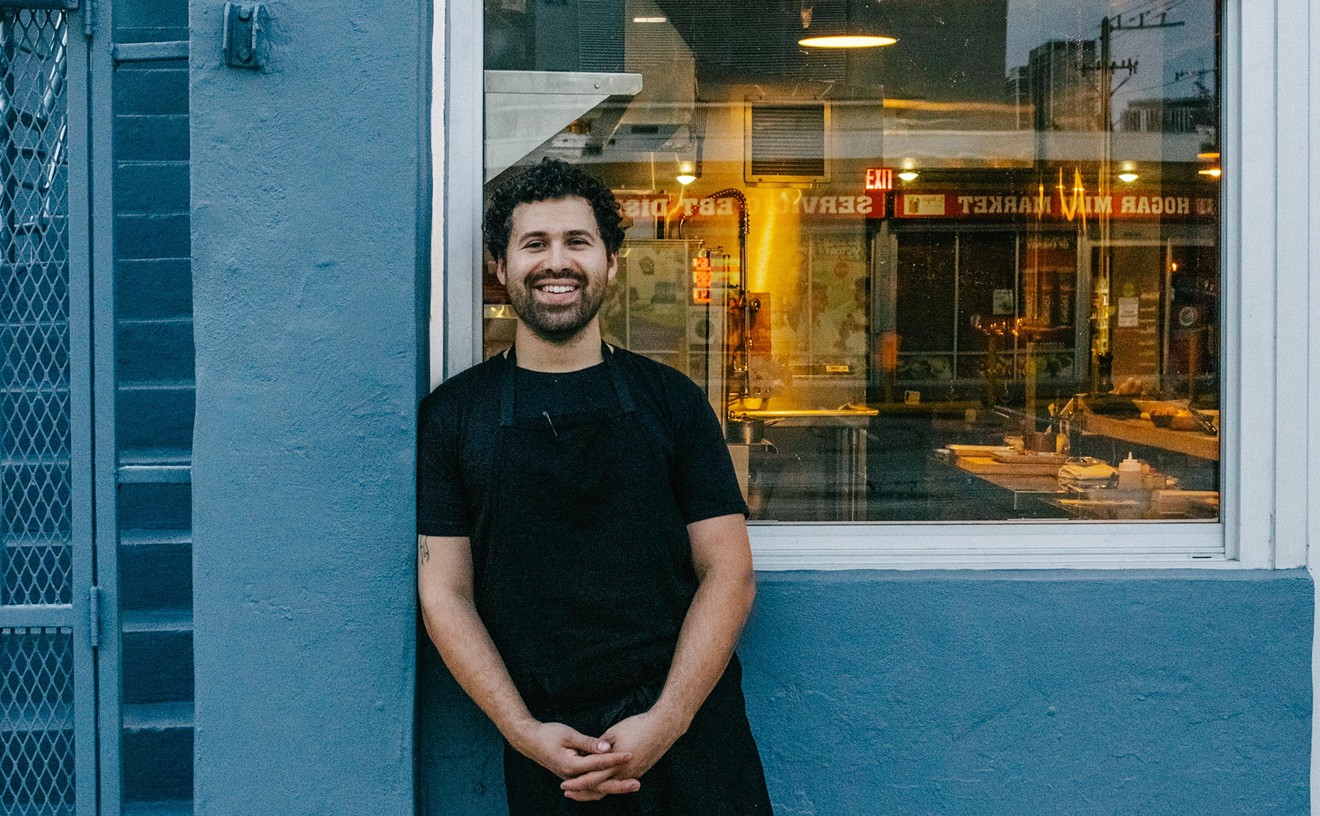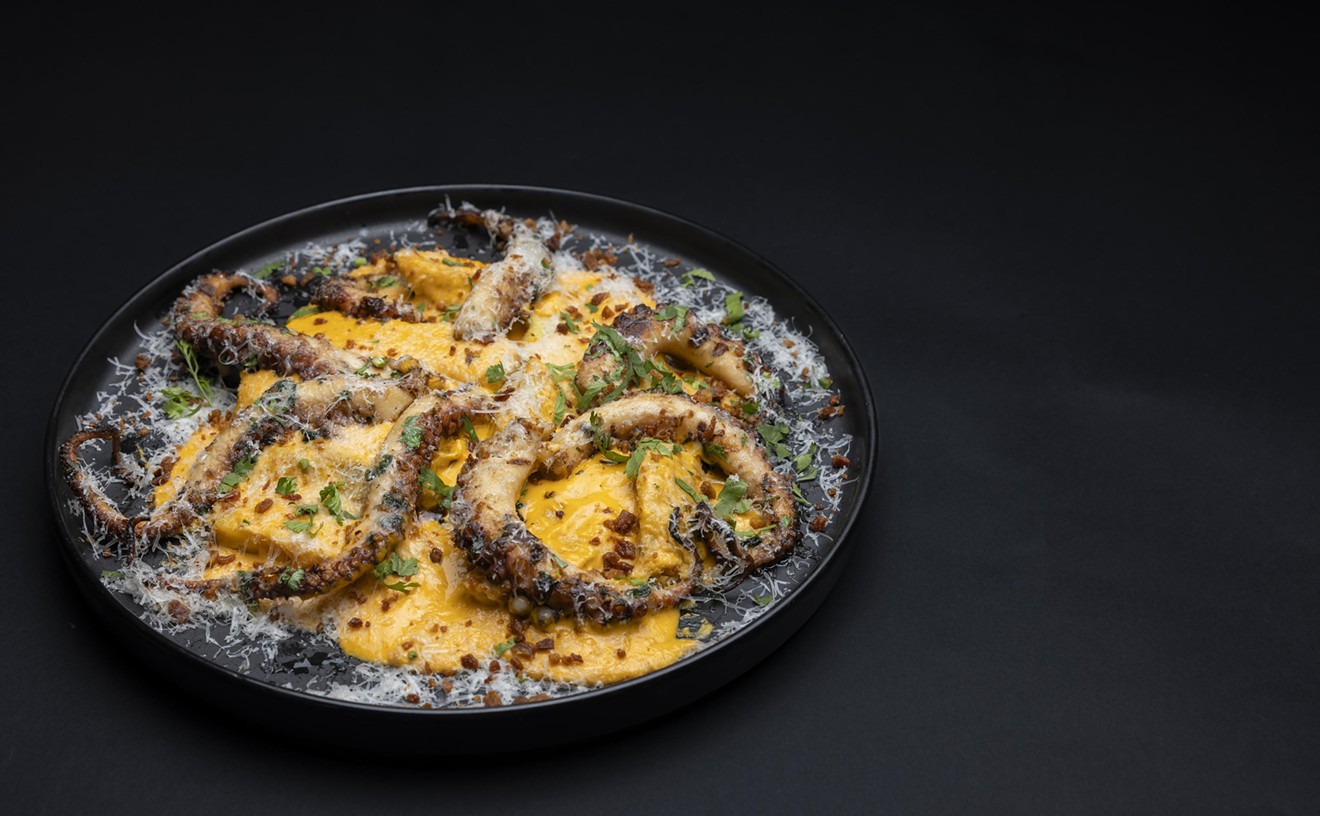Imagine you live in the burbs, want to build a garden, but don't want to disturb your pristine lawn. So you decide to pot your plants. Sorry, but that's not allowed, according Miami-Dade County zoning officials.
Rigo and Eliza De La Portilla were a little shocked to discover this fact recently after receiving a courtesy warning notice from the county zoning department.
See also: How To: A DIY Pallet Garden For Apartments With Balconies (Photos)
The De La Portillas were cited for having too many potted plants on their property in the Westwood Lakes neighborhood of West Dade. Seems it's an "unauthorized use in a single family residential district (RU-1)... nursery business in a residential district; plants; pooting [sic] soil."
Presumably, they meant potting soil rather than "pooting" soil. But according to Grisel Rodriguez, supervisor for zoning information, the use of potting soil with numerous potted plants -- for decoration or consumption -- constituted a violation of RU-1 zoning ordinance. She acknowledged that some potted plants are allowable but said the number of plants that might constitute a violation is left up the interpretation of the compliance officer. However, she did mention what might be considered too many.
"The line is subjective," she said. "If you have 30 potted plants around your house, then that's a little fishy. It doesn't pass the smell test. Because you have potting soil there, I would conclude that is a nursery."
Property designated as RU-1 is also the most abundant and the most restrictively zoned residential land in the county.
Rodriguez added that zoning ordinances in Miami-Dade are exclusionary codes, meaning if something is not permitted, as in this case of the single-family residential district zoning ordinance (Chapter 33, Article XIV of Miami-Dade ordinances), it is not allowed.
It might seem ridiculous to prohibit numerous potted plants, but the county contends that code enforcement officers are specifically trained to notice them, according to officials at the zoning department. Agricultural uses of RU-1 land are prohibited, says Rodriguez, adding this is allowed on land designated as AU, or agricultural use, which is generally found in the more rural parts of the county.
Of course, the De La Portillas aren't too happy about. Being part of the "grow food, not lawns" movement, they are just trying to subsist by growing their own food. Besides having a garden covering most of her land, they use it to establish permaculture, which is based on sustainable, self-maintaining agricultural systems. They don't want to constantly shell out cash to buy plants from Home Depot. De La Portilla uses the pots to propagate the plants, some of which include fruit trees. They promote sustainable urban agricultural practices with their blog, southfloridasurvival.com.
De La Portilla and her husband have tattoos and also run a bee-keeping operation on the same property. They believe they might be the target of zoning enforcement because of their lifestyle. They have received three warning notices since moving to the neighborhood less than a month ago.
In response to a request from New Times, officials from the Dade County Zoning Department said the warning notices were issued as a courtesy to address several anonymous complaints and to reach out to the De La Portillas for more information regarding their land use. Additionally, officials say the residents were cited for having cardboard boxes, tarps, tools, and "other junk and trash scattered around" the property.
Living in a neighborhood with several residents who own landscaping businesses, De La Portilla suspects a neighbor might have mistakenly thought she was running a competing business and complained to zoning enforcement. She also says the zoning officer might have been further tipped off by a sign advertising local honey and must have entered the property to see it.
Amending the zoning ordinances to allow a profusion of potted plants in RU-1 would require a public hearing and, ultimately, the blessing from the county government.
"We don't want to step on any toes and break any laws, but we want to grow our own food," De La Portilla says. "We don't know why someone is reporting us when there are several people down the road who sell avocados out of their front yard."
Follow David Minsky on Twitter and Instagram
Follow Short Order on Facebook, Twitter @Short_Order, and Instagram @ShortOrder.









